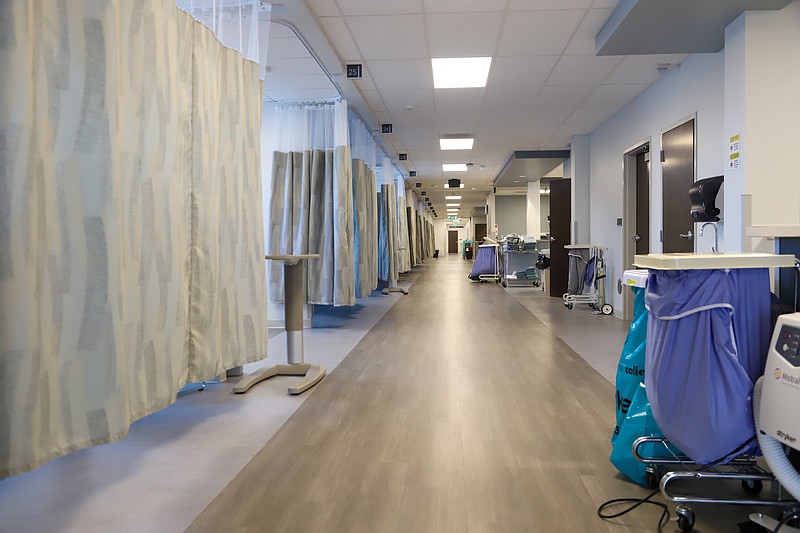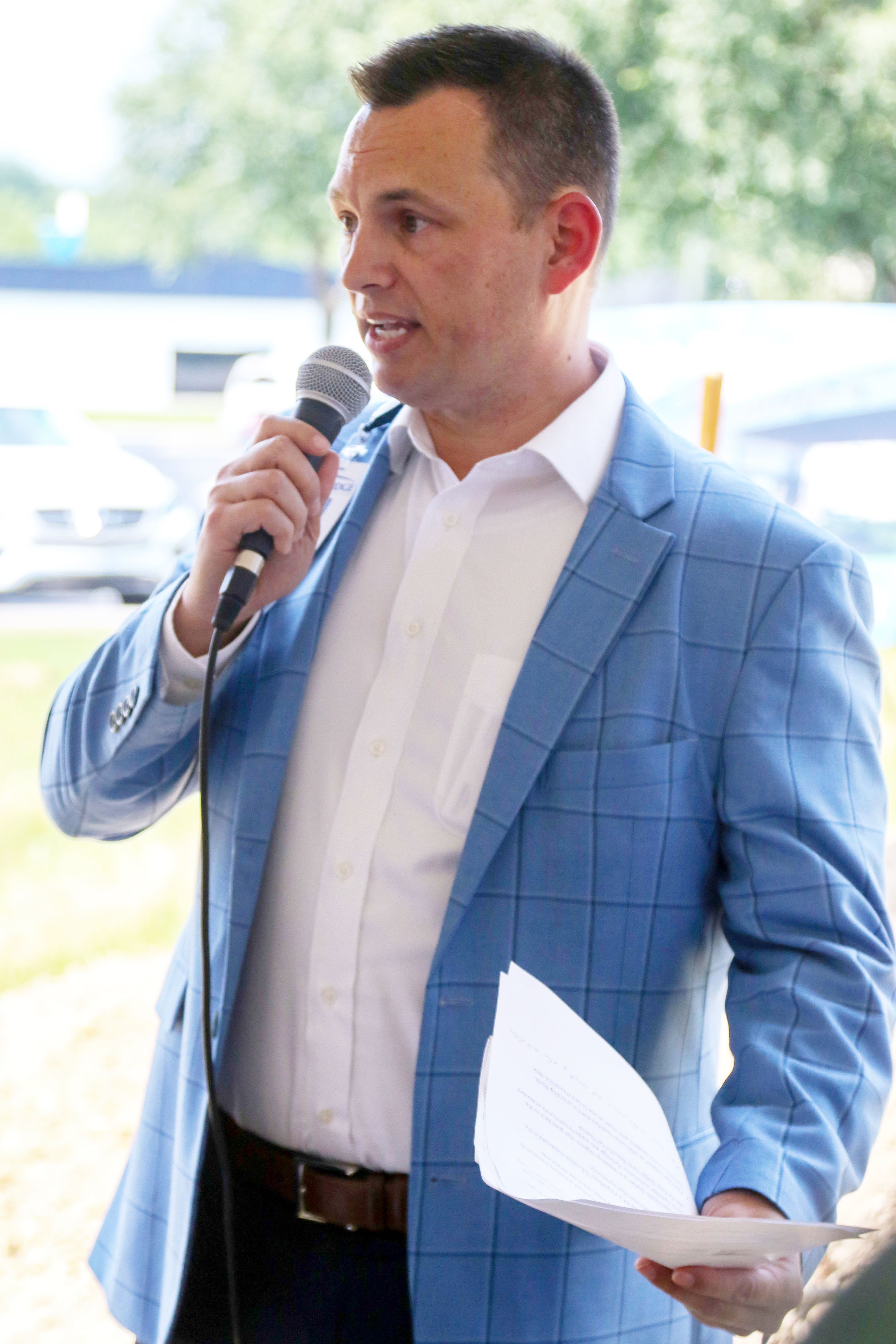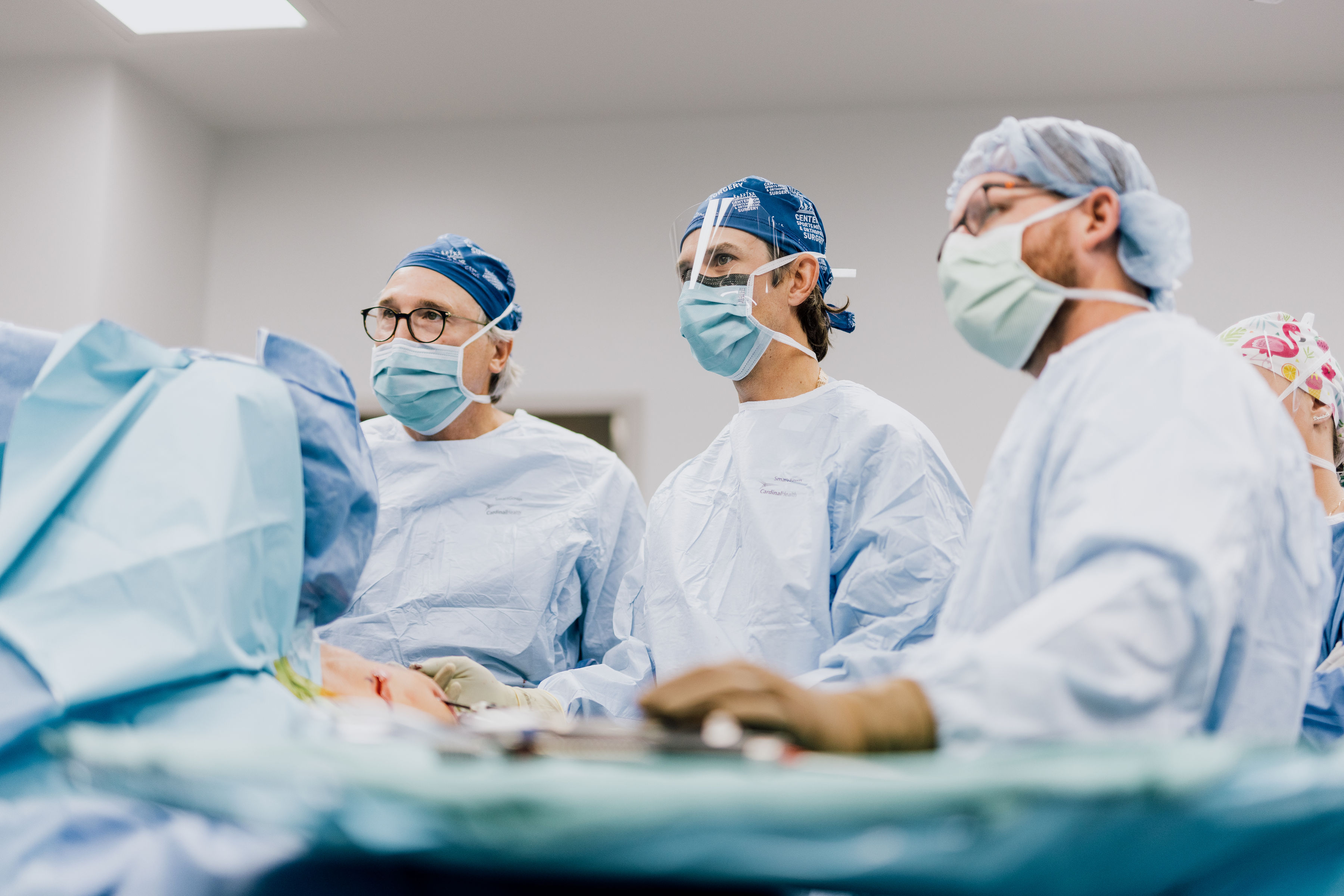Much about the Center for Sports Medicine and Orthopaedic Surgery Center is akin to a hospital: the long hallways lined with 40 patient bays, the 10 operating rooms outfitted with the latest technology and the complex surgical procedures performed within its walls.
And in the not so distant past, virtually all of the patients who undergo surgery at this $18.7 million facility — which opened in July 2023 — would have had to go to a hospital for their care.
Medical advancements, changes in payer reimbursements and patient and provider preferences are driving an increasing number of surgical procedures toward the outpatient setting, meaning patients don't require hospitalization and get to go home the same day.
Gallbladder removal, ear, nose and throat surgeries, eye surgeries and some orthopedic procedures are among the many common surgeries now conducted on an outpatient basis.
"It used to be that every total joint replacement was an inpatient procedure where you stayed anywhere from three to five days, depending on your medical condition," says Becky Farmer, CEO of the Center for Sports Medicine and Orthopaedics. "We're doing a significant number of total joint replacements in our surgery center — total hips, total, knees, total shoulders — and the patients are going home the same day and doing extremely well."
(READ MORE: Chattanooga outpatient surgery center will be only one in region using robot technology)
Outpatient surgeries can — and often do — happen at hospital facilities. But the emergence of ambulatory (another word for outpatient) surgery centers is upending the health care marketplace.
That's because outpatient procedures performed in an ambulatory surgery center can cost between one half and two-thirds less than the same procedure being performed at a hospital, according to several industry publications. The savings come from the fewer resources it takes to operate a surgery center compared to a full hospital, Napier says.
"You're going to see the bricks and mortar of hospitals shrinking to where they do what they do best, and that is the really sick patients," she says. "And you're going to see these ambulatory care groups growing, because they can do these cases in a medically safe environment that's better for the patient, better for the physicians and more economical."
Many patients also prefer the convenience of outpatient facilities, and many providers enjoy the independence they get by controlling their own facility. The Center for Sports Medicine and Orthopaedic Surgery Center is 100% physician owned, Napier says.
Ambulatory surgery centers have proliferated across the nation as a result of these industry trends.
In Chattanooga, another physician-owned surgery center — Riverfront Surgery Center — opened in 2022 on the ground floor of Riverbend Medical Center at The Bend on Riverfront Parkway in 2022. The facility offers spine, total joint replacements and a range of orthopedic surgeries and procedures, according to its website.
But the shift in payer requirements has been slower to take off in Chattanooga compared to other cities, Napier said, though she senses that is changing.
"These hospital systems that you see building all this bricks and mortar, I just kind of scratch my head and go, 'What in the world?'," she said. "What you would think is that they would start getting behind building more ambulatory surgery centers."
In November, state regulators approved a first-of-its-kind plan between Parkridge Health System and Erlanger Health to build a $23.2 million multi-speciality, outpatient surgery center inside a former U.S. Xpress office building off Interstate 75. The facility, named Chattanooga East Surgicenter, is poised to become the area's first multispeciality, outpatient surgery center of its size.
(READ MORE: 'Historic' Chattanooga surgery center gets state approval)
Once complete, the nearly 24,000-square-foot facility will include five operating rooms, four procedure rooms and recovery bay to provide a range of surgeries, including orthopedic; plastic; gynecological; ear, nose and throat; endoscopy; and urology.
The surgery center will be 51% owned by HCA (Parkridge's parent company) and 49% owned by Erlanger, which will come together to form a general partnership. That partnership will then create a joint venture that's 51% owned by the general partners and 49% owned by the surgery center's physicians, with no physician owning more than 5%.
Nationally, physicians have at least some ownership in virtually all (90%) ambulatory surgery centers, according to the Ambulatory Surgery Center Association.
"But what is more interesting to note is how many ASCs are jointly owned by local hospitals that now increasingly recognize and embrace the value of the ASC model," the association's website states. "According to the most recent data available, hospitals have ownership interest in 23% of all ASCs and 2% are owned entirely by hospitals."
Chattanooga's other major hospital system, CHI Memorial, owns and operates an ambulatory surgery center on Battlefield Parkway between Ringgold and Fort Oglethorpe in Catoosa County, Georgia. The facility includes two "GI labs" to conduct endoscopy procedures and two operating rooms equipped to perform a range of minimally invasive outpatient surgeries, such as breast surgery, gallbladder removal, gynecologic surgery, hernia repair, plastic surgery, urologic surgery and general surgery.
A barrier to building more surgery centers in Tennessee is the state's "certificate of need" law, Napier said. Certificates of need are similar to permits in that a health care provider must prove to state regulators that certain services are needed in a given area before building a facility and offering those services.
"A lot of surgeons in town right now don't even have an option to go to a surgery center, because there's not enough," Napier says. "I think it's important for patients to ask and to shop around and talk to your surgeon to find out if they could qualify to have their case performed in one of these types of facilities."
Not all surgeries — including those that are routinely performed outpatient — are safe to be conducted in this setting. Patients with higher-risk medical needs, such those with multiple chronic conditions and some older adults, may need to undergo surgery at a hospital where there are more support services.
(READ MORE: Health officials look to cut costs as demand for knee, hip replacement surgery soars)
Certain sub-specialists are also more likely to see patients outside of the hospital versus inpatients. For example, Napier says the center's spine surgeons continue to conduct the majority of their cases inpatient due to the complex nature of those surgeries, whereas total joint replacements are about 50/50 outpatient versus inpatient depending on the patient.
The Center for Sports Medicine and Orthopaedic Surgery's physicians also continue to take call at local hospitals despite the surgery center opening, she says.
One challenge in operating a surgery center is finding a trusted anesthesiology group that's comfortable working in that environment.
"The ones that are very good at the surgery center are the ones that are very familiar with not using a lot of narcotics — they're using blocks instead of the really strong anesthesia," Napier says, adding that those less-sedating anesthesia techniques are in large part what allows patients to go home on the same day as their procedure.
"We're doing simple spine cases at our surgery center, and I think most people would be shocked by that," she says. "But our patients do really well, and as would most people, they would much rather be at home in their own bed at night and with their family."
READ MORE


